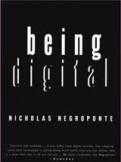A Portal is a web site but…
Over the years, the word portal has acquired a lot of meanings.
Infact, it has became so ubiquitous that there is a danger that
one could call his 5-odd-pages-static -web site a portal too.
So, if an ordinary web site is not a portal, what is a portal anyway?
A portal in its simplest definition means a gateway or a destination
site…or a starting point. So, if you have your customers/stakeholders
log on to yourwebsite.com and get to do more than just accessing
the content and start savoring the other
Cs (Communication, Collaboration and Commerce) you are on
the ‘portal’ trail.
Types of Portals
Having defined a portal, let’s go for a broad classification of portals.
1.Dynamic web publishing; possibly the simplest use-case
and a common entry point for portal developers.
2.Self-service portal; improving customer, partner, or
employee care by enabling them to help themselves and
obtain better service on their terms.
3.Collaboration portal; allowing geographically dispersed
teams to work together on projects, handing out
assignments, collaborating on tasks, providing review on
documents and tracking progress.
4.Enterprise intranet; helping employees work more
effectively and efficiently, often via multiple specialized
portal applications.
5.E-business portal; enabling enterprises to extend
commercial information and services to external trading
partners, suppliers, and customers
6.Enterprise integration; possibly the most complex use
case, piecing together enterprise systems to achieve greater
efficiency and agility; involving ERP and Business Performance
Management software as well.
Portal Life Cycle
Each of the above portals go through a different life cycle because
of their end-customers. The life cycle gets further altered based on
the utility they serve and the channel they use. For instance, a mobile
delivery brings in a new dimension.
Here are the broad steps
1. Research
2. Strategy
3. Ideation
4. Design (Visual, Content and Technical)
5. Development and Integration
6. Support and Maintenance
It is built, but ain’t over yet…
An effective management of the combination of
4Cs (Content, Communication, Collaboration, Commerce) based on
the requirements of your internal and external stakeholders adds
all the necessary dimensions to your portal framework. Once the
framework is in place, it is all about executing it…over and over again,
the stakeholders only ask for more.


